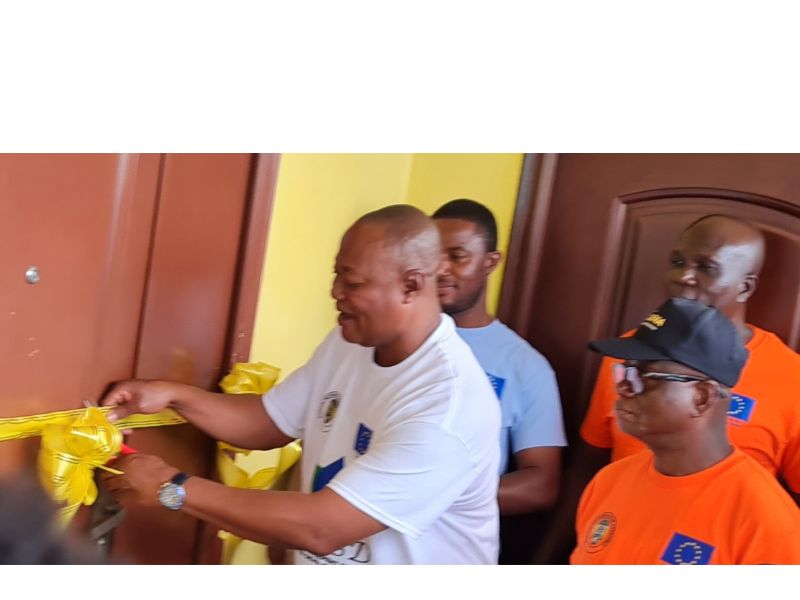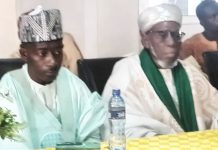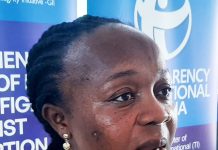A Green Information Point to serve as the Secretariat where people can access information about the Holistic Reinforcement for Sustainable Development (HORESD) project has been commissioned in Kumasi.
The office has a 30-seater Conference Hall, which would be used for the Sustainable Entrepreneurship School, three office cubicles which would be occupied by the International Project Coordinator, the Local Project Coordinator, and the other Project staff.
It is also equipped with a Coordinator’s Desk, four-seater workstation desk, swivel chairs, visitors’ chairs, conference table and 16 No. chairs, bookshelf, metal cabinet, 2300 Lumens Epson projector, project screen, HP laptops, three-in-one HP Laser Jet Pro Colour Printer, two TB external memory drive, and 1080 Lumens Web Cam.
Kumasi City has received a €2.5 million grant for the implementation of the HORESD project, which was launched in Kumasi last March by the Head of Delegation of the European Union Commission, the Spanish Ambassador to Ghana, and other high-profile dignitaries from Spain.
The project, being funded by the European Union, is to be implemented over 30 months, and aims at building the capacity of the local authorities in Kumasi to improve service delivery, particularly in the area of waste management, as well as help improve public services delivery, through the capacitating of the local authorities, and participatory, capacities of the citizens in the planning and execution of strategies towards achieving efficient services delivery.
The project is also expected to strengthen Kumasi’s capacity to provide public services with priority for an integrated management system of urban solid waste.
It would be piloted through the implementation of comprehensive waste management and collection systems; four small community composting plants, and two small recycling stations, as well as a small plant to generate energy from waste.
Commissioning the office last week Wednesday, the Mayor of Kumasi, Sam Pyne, said the project had a training plan for those targeted in a school called Sustainable Entrepreneurship School to empower the targeted population of Kumasi with the technical know-how, reliable data and the financial resources needed to manage their businesses in the circular economy.
He expressed gratitude to the EU for the support, and gave the assurance that the KMA would work to forge the required partnership to ensure the achievement of the SDGs by 2030.
The Local Project Coordinator, Mr. Joshua Nii Noye Tetteh-Nortey, who is also the Project Officer of the KMA, said about 30, entrepreneurs would be selected to the Sustainable Entrepreneurship School (SES), from which five would be selected to receive a seed capital of €3,000.
He said the project would also train and build the capacity of 10 existing companies currently operating in the waste sector in the circular economy.









